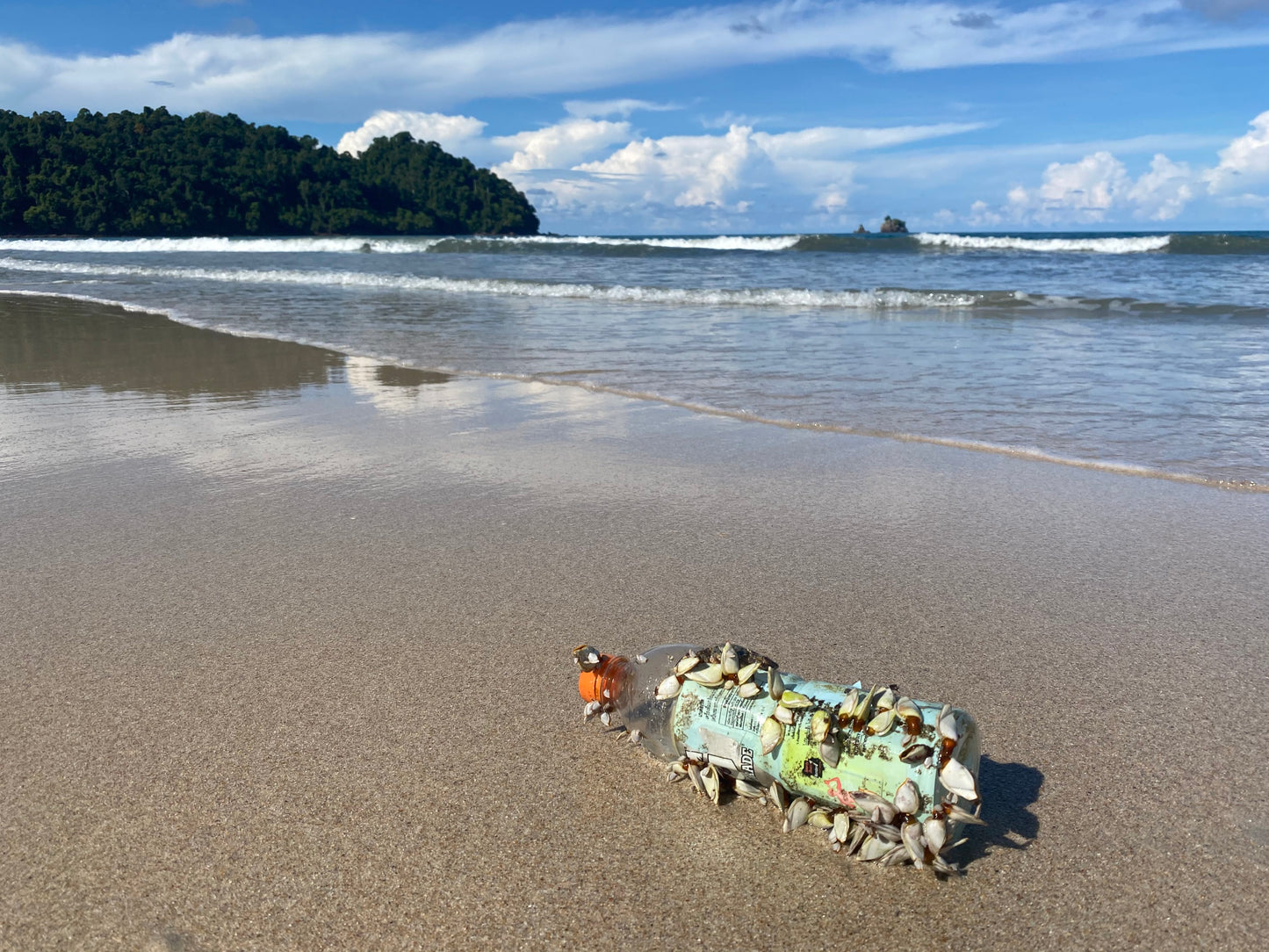
Throughout my search for the most sustainable packaging for Saucha’s products, Bioplastic was often promoted as the most sustainable option. However, is this actually the case?
During a phone call I had with George in 2020, Supply Chain Director from the Plastic Bank, I asked him the question whether he would advice me to use recycled-or-bioplastic for the packaging of Saucha, where his clear answer was:
“Bioplastic is the worst that could happen to the world.”
For me at first this was surprising. We get fooled by marketing so much, thinking that Bioplastic is the greenest solution. After further research, George his statement was indeed supported by many scientific articles. I believe it’s important to create awareness regarding real sustainable products and packaging vs. greenwashing, in order for you to make actual sustainable choices.
How environmentally friendly are biodegradable plastics?
With the knowledge that plastic pollution is creating an environmental crisis, the demand for alternatives that are less polluting is rising. Bio-based and biodegradable plastics are referred to as the ‘cleaner’ or ‘greener’ types of plastic. However, these types of plastics can be misleading for consumers because they often are just as pollutant or even more as virgin (petroleum based) plastics. So how environmentally friendly are biodegradable plastics?
Most biodegradable plastics can only degrade in a special industrial composting facility, where very specific temperatures, humidity-levels and lights are controlled. Even biodegradable plastic materials that are labelled as compostable are not compostable at home, but only at these industrial composting facilities. So it won’t biodegrade at all in your average backyard compost pile or buried in a landfill, where it will sit for hundreds of years like any other piece of plastic. Currently, biodegradable (including “compostable") plastics are often not composted or recycled in the Netherlands, but are treated together with residual waste. The current system in the Netherlands is not build to separate the bioplastic from the regular plastics, so even if we used composting facilities especially for bioplastic, the gross won’t even end up there.
But will biodegradable plastics actually degrade?
During a study of the University of the Witwatersrand, A/Prof. C.M. Sheridan investigated the biodegradability of bioplastic vs. petroleum based plastic under various conditions. Be warned, this bit gets quite technical ;).
While exposing the available bioplastic to different conditions by varying the temperature, pH and nature of the environment, the bioplastic samples did not seem to degrade but instead gained weight. While the mass increases were small, all under 1% , the fact that there was an increase in contrast to a decrease or constant mass was of concern. Meaning the decreasing time of bioplastic in the environment can be just as long, or even longer, as petroleum-based plastics and is thus even (more) polluting.
So while the term bio, and other similar words, are thrown around to help promote a product as more environmentally friendly, this may not always be the case.
Also, bioplastics only potentially decay when it has been in a special composting machine long enough (at least 12 weeks) and in The Netherlands they stay in such an installation at most 1-4 weeks. Biodegradable means the material should break down into water, carbon dioxide and minerals. However, during the timeframe of 1-4 weeks, these plastics do not actually biodegrade but merely break down into microplastics which are returned to - and are toxic for - the environment and our own body.
Besides, if PLA (Polylactic Acid; where bioplastics are made from) ends up in the stream of plastic for recycling, it can even cause problems in the current recycling process. The PLA causes a significantly lower quality of the generated material, which makes it unsuitable for many purposes. Resulting that recycling virgin plastic becomes much harder and eventually even results in waste. Since PLA looks exactly the same as regular plastic, it could easily end up in the wrong garbage bin. So in the end, bioplastic even makes the recycling process of plastic more complicated, giving it more pain than pleasure.
Moreover, the raw materials of bioplastics are often produced on agricultural land, precious space nowadays that can also be used for the production of food.
So, what better alternative do we have now?
Even if we could limit disruption to food production and improve our recycling infrastructure, the only way bioplastics can be a truly sustainable alternative to petroleum plastics is by a well functioning separation and recycling process of bioplastic and virgin plastic.
Until the government has found a well-functioning solution for bioplastics, it is therefore the best and most sustainable way to recycle the already existing plastic instead of creating more.
At the moment there is 5.25 trillion macro and micro pieces of plastic in our ocean, which is increasing with 8 million pieces of plastic every day. Of the 8.3 billion tons manufactured, 6.3 billion tons ended up as waste. Only 9% of that is recycled. The vast majority - 79% - are in landfills or languish as waste in the environment.
Unfortunately, we cannot get rid of the already existing plastic. It will only degrade in micro-plastics, which will remain in the environment for forever, disrupting the whole eco-system. So it’s clear that it’s time that we should start recycling. Even though we cheer for skincare packed in zero-plastic, our goal is to clean the plastic mess on our planet.
If we recycle, no new plastics will be disrupting to the current cycle, resulting that the current recycling system can work efficiently around it.
At Saucha our packaging is made from 100% post-consumer recycled plastic, mainly collected from South-East Asia, there where cleaning is of highest importance. Besides that, we also collect 1kg (equal to 50 bottles) of ocean plastic per every sold item.
Together we can make a difference!
Love,
Robin
